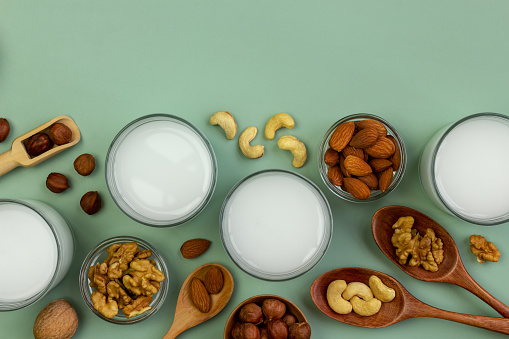The US Food and Drug Administration (FDA), reportedly carried out the first large study to compare levels of four key micronutrients – phosphorus, magnesium, zinc, and selenium – in eight different plant-based milk substitutes, as well as cow’s milk.
Join our WhatsApp ChannelThe FDA analyzed levels of the four minerals in 85 samples of plant-based milk, made from almond, cashew, coconut, hemp, oat, pea, rice, and soya.
The study found that almost all plant-based kinds of milk have lower amounts of the four micronutrients, except for milk substitutes made from pea protein, which contain similar levels to cow’s milk.
Plant milks are often naturally lower in calcium and iodine, but may be fortified with these nutrients, and producers in the US are required to state their concentration on the packaging.
But levels of some other minerals, including magnesium, phosphorus, zinc, and selenium, aren’t required to be on the label and yet milk and other dairy products are usually a major source of them in the US diet, said Benjamin Redan of the FDA.
In addition, Clare Thornton-Wood, a spokesperson for the British Dietetic Association, added that all of these nutrients can be obtained from other sources, such as nuts, seeds, and lentils.
The alt-milk category, which is generally made of grounded-up products such as almonds, oats, or rice, soaking them in water, and adding emulsifiers and stabilizers to produce milk, has been growing in popularity in recent years.
While health is a significant driver in the adoption of plant-based foods, other factors such as sustainability and animal welfare have also risen to become key motivators.
However, another study gives conflicting findings. In different study, which was presented at the American Chemical Society Fall 2022 event, researchers took a look at the mineral content of various plant-based milk options, the same as the FDA’s study.
Not only did they find that both pea and soy milk had higher levels of these minerals when compared to cow’s milk, but pea milk had 50% higher levels of phosphorus, zinc, and selenium than milk from a cow.
Trista Best, a Registered Dietitian commented that this study shows that pea milk is an excellent alternative, whereas most consumers think of soy as an ideal dairy milk alternative. It is great that this type of research is being conducted.
She added that what the alt-milk consumers are missing in plant milks versus dairy-based milks is minimal, especially when compared to what they are avoiding by drinking plant-based milks.
Consumers are said to be going into plant-based milks primarily to avoid inflammatory dairy and saturated fat.
Accordingly, Peas, Best said, are very low on the allergen potential than the other plant-based milk alternatives and may be an ideal option for anyone with a known allergy to the other plant-based milks.















Follow Us